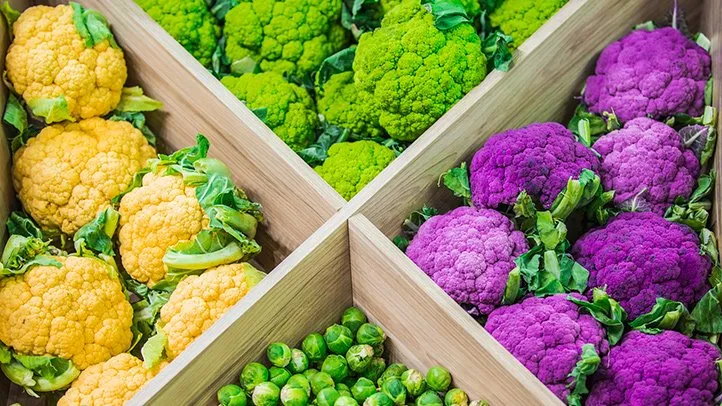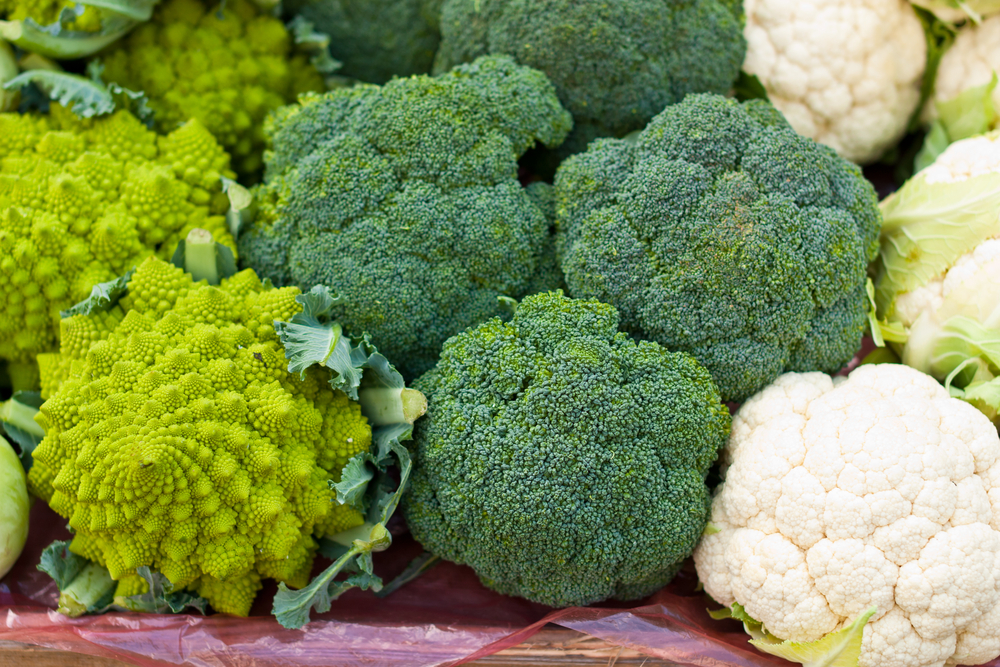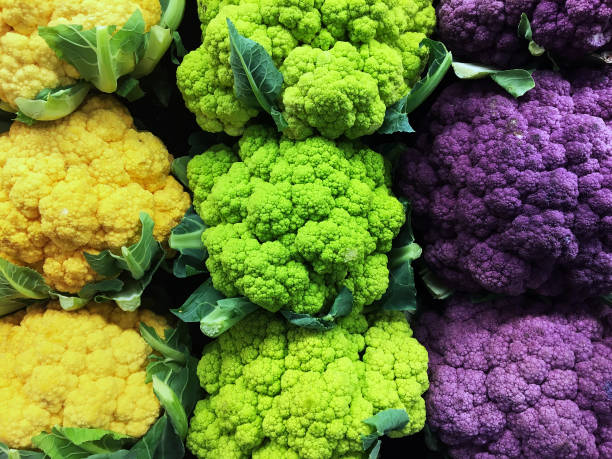
Broccoli and other cruciferous vegetables such as cauliflower, cabbage, kale, bok choy, and Brussels sprouts are considered some of the healthiest foods on the planet. Packed with vitamins, minerals, antioxidants, and fiber, these vegetables are known for their role in boosting immunity, supporting heart health, aiding digestion, and even preventing cancer. In this article, we will explore the science-backed benefits of cruciferous vegetables, why you should include them in your daily diet, and how they can improve your overall well-being.
What Are Cruciferous Vegetables?
Cruciferous vegetables belong to the Brassicaceae family. They are named after the Latin word “crucifer,” which means “cross-bearing,” due to the cross-like shape of their flowers. Popular cruciferous vegetables include:
-
Broccoli
-
Cauliflower
-
Cabbage
-
Kale
-
Brussels Sprouts
-
Bok Choy
-
Radish
-
Mustard Greens
These vegetables are low in calories but rich in essential nutrients, making them ideal for a healthy lifestyle.
Nutritional Profile of Broccoli
One cup of cooked broccoli contains:
-
Calories: Approximately 55
-
Vitamin C: 135% of the Daily Value (DV)
-
Vitamin K: 116% of the DV
-
Fiber: 2.5 grams
-
Protein: 4 grams
-
Folate, Potassium, Iron, and Calcium
Broccoli also contains powerful plant compounds like sulforaphane, indoles, and carotenoids, which are responsible for many of its health benefits.
 Top Health Benefits of Broccoli and Cruciferous Vegetables
Top Health Benefits of Broccoli and Cruciferous Vegetables
1. Rich in Antioxidants
Broccoli contains antioxidants such as lutein, zeaxanthin, and vitamin C, which fight oxidative stress and protect cells from damage. Sulforaphane, a compound found in cruciferous vegetables, activates detoxifying enzymes in the body and helps reduce inflammation.
2. Powerful Cancer-Fighting Properties
One of the most researched benefits of cruciferous vegetables is their ability to reduce the risk of cancer. Studies show sulforaphane and indole-3-carbinol help:
-
Prevent tumor formation
-
Detoxify carcinogens
-
Slow the growth of cancer cells
Regular consumption is linked to lower risks of breast, lung, prostate, and colon cancers.
3. Supports Heart Health
Cruciferous vegetables improve heart health by:
-
Lowering LDL (bad cholesterol)
-
Reducing inflammation in blood vessels
-
Improving blood pressure levels
The fiber content in broccoli helps remove excess cholesterol from the body, while potassium helps regulate blood flow and prevent hypertension.
4. Boosts Immunity
Broccoli is an excellent source of vitamin C, which strengthens the immune system and helps the body fight infections. Vitamin K also plays a role in maintaining healthy bones and blood clotting.
5. Improves Digestive Health
The high fiber content in cruciferous vegetables supports gut health by promoting regular bowel movements and feeding beneficial gut bacteria. Fiber also helps prevent constipation and supports weight management by keeping you fuller for longer.
6. Detoxifies the Body Naturally
Cruciferous vegetables support liver function and help flush out toxins from the body through glucosinolates—a group of compounds that activate detoxification enzymes.
7. Anti-Inflammatory Effects
Chronic inflammation is the root cause of many diseases, including arthritis, diabetes, and heart disease. Sulforaphane in broccoli helps reduce inflammatory markers and protect tissues from damage.
8. Supports Healthy Skin and Eyes
The beta-carotene and vitamin C in broccoli are crucial for glowing skin and good vision. These compounds protect against UV damage and age-related eye disorders.
How Cruciferous Vegetables Help With Weight Loss
Broccoli and cabbage are extremely low in calories but high in water and fiber. This combination helps you feel full without overeating. They also improve metabolism due to their protein and nutrient content, making them excellent additions to weight-loss diets.
Best Ways to Consume Broccoli and Cruciferous Vegetables
To preserve nutrients, these vegetables should be lightly cooked or eaten raw. Overcooking may reduce their cancer-fighting compounds.
Recommended Methods:
-
Steaming broccoli for 3–5 minutes
-
Stir-frying mixed cruciferous vegetables
-
Eating them raw in salads
-
Adding them to soups or smoothies
-
Lightly roasting sprouts and cauliflower
Tip: Adding garlic, olive oil, lemon, or black pepper can increase flavor and absorption of nutrients.
Daily Recommended Intake
Nutritionists recommend consuming at least one cup of cruciferous vegetables daily. Including a variety in your weekly diet can maximize health benefits and provide a broad spectrum of vitamins and antioxidants.
Frequently Asked Questions (SEO Friendly)
What makes broccoli a superfood?
Broccoli is packed with vitamins, minerals, antioxidants, and phytochemicals that help fight diseases, boost immunity, and improve digestion—all in one low-calorie package.
Can broccoli help prevent cancer?
Yes. Broccoli contains sulforaphane and indole-3-carbinol, which are clinically proven to reduce the risk of certain cancers by detoxifying harmful substances and inhibiting cancer cell growth.
Are cruciferous vegetables good for weight loss?
Absolutely. They are high in fiber, which keeps you full, and low in calories, making them perfect for weight management.
Conclusion
Broccoli and other cruciferous vegetables are nutritional powerhouses that support nearly every function of the body—from boosting immunity and digestion to preventing chronic diseases like cancer and heart disease. Including these vegetables in your daily diet is a simple yet powerful way to enhance long-term health and vitality.
Whether you steam broccoli for dinner, add cabbage to your salad, or blend kale into your smoothie, every serving brings you one step closer to a healthier life. With their rich supply of vitamins, minerals, fiber, and antioxidants, cruciferous vegetables truly earn their title as some of the healthiest foods on Earth.
Start adding more broccoli and cruciferous vegetables to your meals today—and experience the incredible health benefits naturally!


You must be logged in to post a comment.